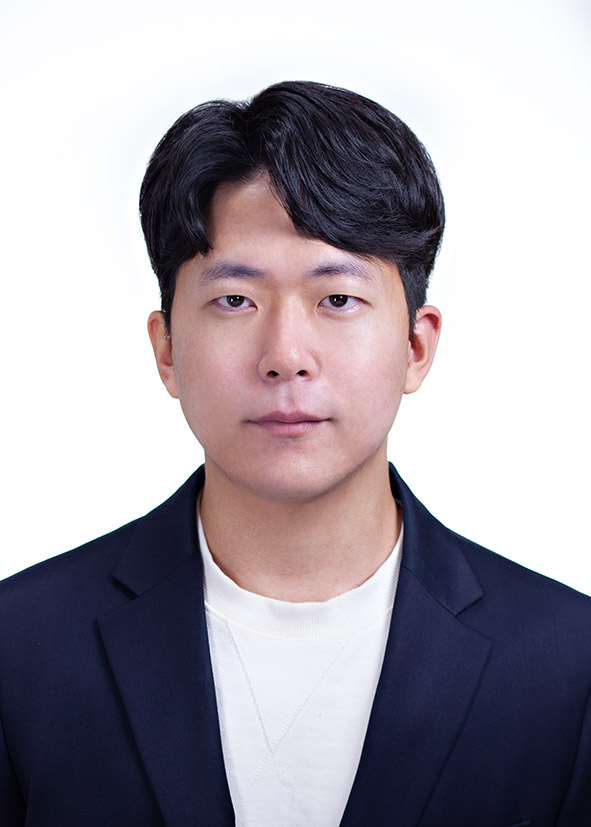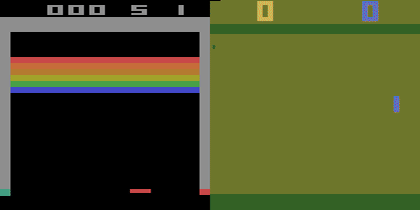Machine Learning & Intelligent Control Lab.
Principal Investigator

Seungyul Han
Assistant Professor
AI Graduate School (AIGS) & Department of Electrical Engineering (EE)
Ulsan National Institute of Science and Technology (UNIST)
50 Unist-gil, Ulsan, 44919, South Korea
Biography
Seungyul Han is an assistant professor in the Artificial Intelligence Graduate School (AIGS) and in the department of Electrical Engineering (EE) at the Ulsan National Institute of Science and Technology (UNIST). He received B.S. (Double major in Mathematical Science) and M.S. degrees in Electrical Engineering from Korea Advanced Institute of Science and Technology (KAIST), Daejeon, South Korea in 2013 and 2016, respectively. He also received his Ph.D. degree in Electrical Engineering from KAIST. Prior to joining UNIST, he was an postdoctoral researcher at Institute of Information Electronics in KAIST, and he is now an assistant professor in UNIST. His main research interests include reinforcement learning, machine learning, deep learning, multi-agent systems, signal processing, and intelligent control systems.
Research Areas
Our laboratory advances machine learning (ML) and reinforcement learning (RL) grounded in rigorous mathematical principles. We explore the foundations and frontiers of next-generation AI by examining the complementary integration of large language models (LLMs) and RL, developing RL algorithms for physical intelligence and embodied agents, and advancing fundamental research in learning-based control and decision making. We also investigate diverse real-world domains where RL can deliver transformative impact. Through this integrated research program, we aim to establish the core control and reasoning capabilities that will underpin future AI-driven systems. The four research directions described above are summarized in the figure below:




News
[2026/01] Our 4 papers have been accepted to ICLR 2026. Congratulations!
[2025/12] Paper “Generalized Per-Agent Advantage Estimation for Multi-Agent Policy Optimization” has been accepted to AAMAS 2026. Congratulations!
[2025/09] Gwanwoo Choi, Mingu Kang, and Sangwoo Bang joined our lab !
[2025/08] Project PI 선정: “End-to-End 대규모 자율군집 제어를 위한 LLM기반 다중 에이전트 강화학습 기술 개발” (NRF 국가아젠다 기초연구, 25.09 – 28.08, 총 연구비 4.8억)
[2025/07] Lectures: UNIST AI Innovation Park, “8th AI Novatus Academia, 6th AI Novatus Academia 경남” / LG DXI course, “Reinforcement Learning & Deep RL.”
[2025/05] Our 2 papers have been accepted to ICML 2025. Congratulations!
[2025/03] Junhyun Bae and Yechan Whang joined our lab !
[2025/02] Lectures:인공지능학회 동계 단기강좌, “강화학습의 기초 및 응용분야.”
[2024/09] Paper “Exclusively Penalized Q-learning for Offline Reinforcement Learning” has been accepted to NeurIPS 2024 as a spotlight paper. Congratulations!
[2024/08] Lectures: UNIST AI Innovation Park, “7th AI Novatus Academia.”
[2024/03] Isak Park, Sangjun Bae, and Gawon Lee joined our lab !
[2024/01] Lectures: LG Innotech LV 3 (advanced AI course), “Deep Reinforcement Learning”.
[2023/12] Paper “FoX: Formation-aware exploration in multi-agent reinforcement learning” has been accepted to AAAI 2024. Congratulations!
[2023/09] Paper “Domain Adaptive Imitation Learning with Visual Observation” has been accepted to NeurIPS 2023. Congratulations!
[2023/09] Lectures: UNIST AI Innovation Park, “6th AI Novatus Academia, 3/4th AI Novatus Academia 경남.”
[2023/03] Sunwoo Lee and Sanghyeon Lee joined our lab !
[2023/01] Lectures: UNIST AI Innovation Park, “4/5th AI Novatus Academia, 2nd AI Novatus Academia 경남.”
[2022/07] Lecture: LG DXI course, “Reinforcement Learning & Deep RL.”
[2022/07] Jeongmo Kim and Minung Kim joined our lab !
[2022/05] Lecture: 한국통신학회(KISC) AI Frontiers Summit (AIFS) Tutorial, “강화학습 및 응용에 대한 최신 연구 동향”
[2022/05] Paper “Robust imitation learning against variations in environment dynamics” has been accepted to ICML 2022. Congratulations!
[2022/04] Project PI 선정: “자율 드론 실용화를 위한 목적지향 강화학습 핵심기술 개발” (IITP 사람중심인공지능 핵심원천기술개발, 22.04 – 26.12, 총 연구비 47.5억)
[2022/03] Lecture: UNIST AI Innovation Park, “1st AI Novatus Academia 경남,” Week 3.
[2022/03] Yonghyeon Jo and Junghyuk Yum joined our lab !
[2022/01] Lecture: 한국통신학회(KICS) 단기강좌 (머신러닝/강화학습의 기초 및 응용 강좌), “강화학습의 기초.” / UNIST AI Innovation Park, “3rd AI Novatus Academia,” Week 3 & 4.
[2021/11] I have joined the Artificial Intelligence Graduate School and the Department of Electrical Engineering at Ulsan National Institute of Science and Technology (UNIST) as an assistant professor.
[2021/09] Paper “A max-min entropy framework for reinforcement learning” has been accepted to NeurIPS 2021.
[2021/05] Paper “Diversity actor-critic: Sample-aware entropy regularization for sample-efficient exploration” has been accepted to ICML 2021.